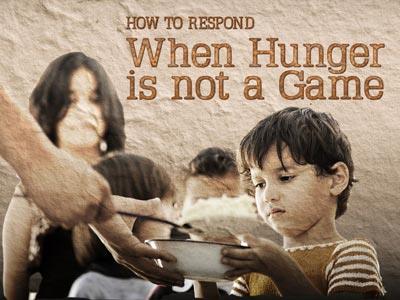-
04. Strength Under Control Series
Contributed by Dr. Bradford Reaves on Feb 28, 2023 (message contributor)
Summary: The Beatitudes continue with blessings for the meek and those who hunger and thirst for righteousness.
Dr. Bradford Reaves
Crossway Christian Fellowship
Hagerstown, MD
www.mycrossway.org
We continue today with our study of the Sermon on the Mount with 2 more Beatitudes. These are foundational characteristics about what it means to be a citizen in God’s Kingdom. Matthew’s Gospel introduces Jesus as King, and in this sermon we find the manifest of the King for his Kingdom. And King Jesus is offering to people a kingdom of happiness - real happiness.
In offering happiness, he must contrast the principles of happiness against the world’s definition of happiness and the source of that happiness. So, he begins with a series of paradoxes. So far we’ve looked at two of those principles, “Blessed are the poor in spirit” (Matthew 5:3) and “Blessed are those who mourn” (Matthew 5:4)
Today we look at the next two Beatitudes found in verses 5 & 6. Let us examine the first of these two
“Blessed are the lowly [meek], for they shall inherit the earth.” (Matthew 5:5)
The famous atheist Frederick Nietzsche, who coined the phrase “God is dead,” once said, “Assert yourself. Care for nothing except yourself. The only vice is weakness and the only virtue is strength. Be strong. Be a superman. The world is yours if you work hard enough for it” Jesus said, “Blessed are the meek, for they will inherit the earth” (Matthew 5:5). Two very different ideas. Although the first words are from an atheist, and the last quote from the teaching of Jesus, it often seems that Christians go by Nietzsche’s philosophy rather than Jesus’ teaching. Many Christians live as though the only virtue is strength. Jesus never talked about strength, but he often spoke of meekness. (Credit: Sermon Central)
So we must first answer the question, what is meekness? I think the best answer to that question is first determining what it is not. I saw one definition that said meekness was “spineless and deficient in courage.” That would possibly be a worldly definition, although not common, but it is not what the Greek means.
The Greek word is praus and it is defined by Aristotle in his work on ethics. For Aristotle, virtues were always defined as a means between an excess of the virtue and a deficiency of it. For instance, Generosity is a means between stinginess and wastefulness. So to Aristotle, meekness was a virtue between excessive anger and the inability to show anger at all. For Aristotle, the meek man is the man “who is angry on the right occasion and with the right people and at the right moment for the right length of time.” (Boice)
A second definition of praus is to describe a wiled animal that is domesticated. Farmers used it to describe a colt that had been broken. These animals had learned to accept control by their masters and could behave properly. Over time, the word came to alsoo refer to people who knew how to behave and eventually would translate over in english for gentlemen.
Meekness is not weakness. It does not denote cowardice or spinelessness or timidity. Meekness does not suggest indecisiveness, a lack of self-confidence, nor does it infer someone with a shy, withdrawn personality. Meekness is rooted in self-control and it is one who is able to balance anger with gentleness. It is strength under control because our strength, hope, and help all come from God alone
Jesus is using Psalm 37:3-7, 10-11“3 Trust in Yahweh and do good; Dwell in the land and cultivate faithfulness. 4 Delight yourself in Yahweh; And He will give you the desires of your heart. 5 Commit your way to Yahweh, Trust in Him, and He will do it. 6 He will bring forth your righteousness as the light And your judgment as the noonday. 7 Be still in Yahweh and wait patiently for Him; Do not fret because of him who prospers in his way, Because of the man who carries out schemes of wickedness. 10 Yet a little while and the wicked man will be no more; You will look carefully at his place, and he will not be there. 11 But the lowly [meek] will inherit the land And will delight themselves in abundant peace.”
Does that describe you in your life right now and the situation you are surrounded in your days? Meekness not on.,y realizes the seriousness of the situation, but they are facing and is ready to do whatever it takes to handle that situation, however only under the direction of the Lord. This is the fruit of the Holy Spirit (Galatians 5:22-23) because the believer’s life is continually lead by the Holy Spirit. It is confidence in God instead of arrogance in ourself. In other words, MEEKNESS IS THE COMPLETE ABSENCE OF CONFIDENCE IN MYSELF AND AN ABSOLUTE, UNASHAMED, BOLD, STEADFAST, CONFIDENCE IN GOD.

 Sermon Central
Sermon Central



